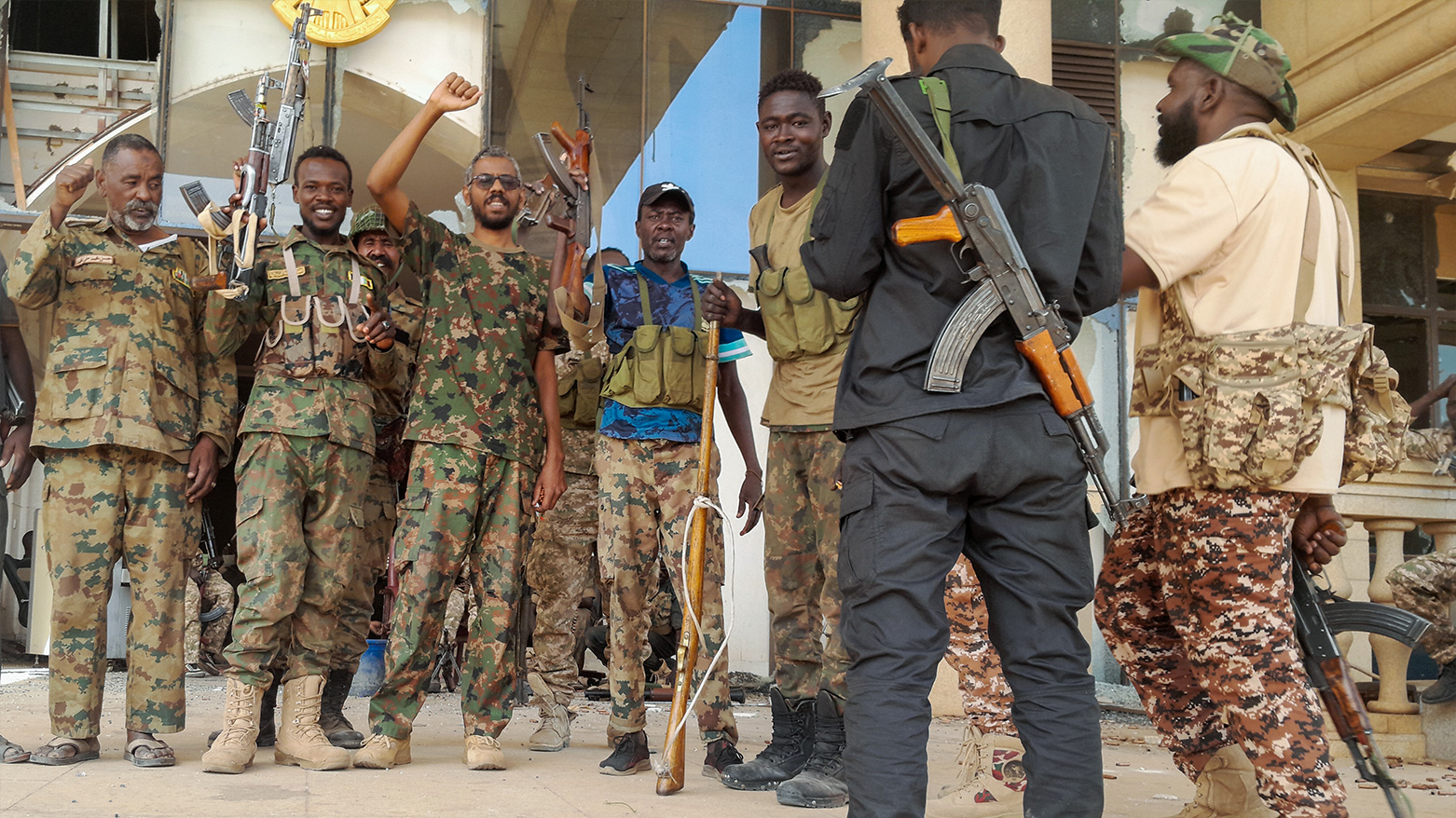SAF Retakes Republican Palace Amid Khartoum Clashes
“In the past few hours, the Sudanese Army has managed to recapture several important strategic locations from the Rapid Support Forces and regain control of them,” he told Kurdistan24.

ERBIL (Kurdistan 24) – In a major development in Sudan’s protracted civil war, the Sudanese Armed Forces (SAF) has announced the recapture of key strategic sites in central Khartoum, including the symbolic Republican Palace, from the paramilitary Rapid Support Forces (RSF).
The announcement signals a significant shift in control of the capital and may mark a turning point in the nearly two-year-long conflict.
Brigadier General Nabil Abdullah, spokesperson for the Sudanese Armed Forces, confirmed to Kurdistan24 on Saturday that government forces had regained control of several vital locations. “In the past few hours, the Sudanese Army has managed to recapture several important strategic locations from the Rapid Support Forces and regain control of them,” he stated.
Among the recaptured sites are the Republican Palace, the General Intelligence Agency headquarters, the Central Bank of Sudan, the Zain telecommunications tower, Sahel and Sahara Bank, and Al-Taawuniya Tower, all situated in the Al-Nilein area in central Khartoum.
These locations are not only critical for the country’s political and economic command but also symbolic of state authority.
According to a report by Euronews, the Republican Palace was the last heavily guarded bastion of RSF fighters in the capital. Its fall represents a symbolic and strategic victory for the army, though it is unlikely to mark the end of the war, as the RSF continues to hold territory in Darfur and other parts of Sudan.
Social media videos showed Sudanese soldiers inside the palace, navigating rubble-strewn hallways with assault rifles and RPGs. Sudan’s Information Minister Khaled al-Aiser confirmed the military’s control of the palace in a post on X, writing, “Today the flag is raised, the palace is back and the journey continues until victory is complete.”
Later in the day, residents reportedly walked through the damaged palace grounds, which were marked by bullet-pocked walls and bloodstains. Some bodies were seen hastily covered, underscoring the brutal violence of the battle.
Despite the army’s announcement, the RSF contested the narrative. The group claimed that its fighters remain active near the palace and that they had launched a drone attack that killed Sudanese troops and journalists. RSF forces also asserted control over the city of al-Maliha in North Darfur near the borders with Chad and Libya. The army acknowledged ongoing fighting in the region but has not confirmed the loss of the city.
Brigadier General Abdullah further claimed that the army had inflicted heavy losses on RSF fighters. “We have eliminated hundreds of Rapid Support Forces members who were trying to flee after their major defeats and leave Khartoum,” he said.
He added that fighting remains ongoing in central Khartoum and other regions, pledging continued operations until “all of Sudan’s territory is cleared from the Rapid Support Forces.”
Khartoum, which comprises three closely connected cities—Khartoum proper in the southeast, Bahri in the northeast, and Omdurman to the west—has been the epicenter of fierce urban warfare since hostilities broke out in April 2023.
With the army’s apparent control over the Republican Palace and surrounding infrastructure, the military now holds a decisive advantage in the capital.
Sudan, a nation in northeastern Africa, has faced deep instability since the ouster of longtime autocratic President Omar al-Bashir in 2019. A short-lived democratic transition collapsed after a military coup in 2021 led by General Abdel Fattah al-Burhan and RSF leader General Mohamed Hamdan Dagalo, known as Hemedti.
The two men, once allies, descended into a bloody power struggle in 2023.
According to humanitarian agencies and UN officials, the toll of the conflict is staggering. While official figures previously cited 20,000 deaths, newer estimates suggest the number may exceed 150,000.
More than 15 million people have been displaced amid widespread famine and collapsed infrastructure. UNICEF has described it as the world’s largest humanitarian crisis.
As the army pushes forward and battles intensify, observers caution that the situation remains fluid. The RSF retains influence in Darfur and other parts of the country, and the risk of prolonged conflict remains high. International organizations continue to call for ceasefire negotiations and renewed diplomatic efforts to end the violence.
For now, the Sudanese Army’s advance into the heart of Khartoum represents a major tactical gain and a powerful symbolic moment. Whether it signals the beginning of the end of Sudan’s brutal civil war—or the prelude to a broader and bloodier phase—remains uncertain.